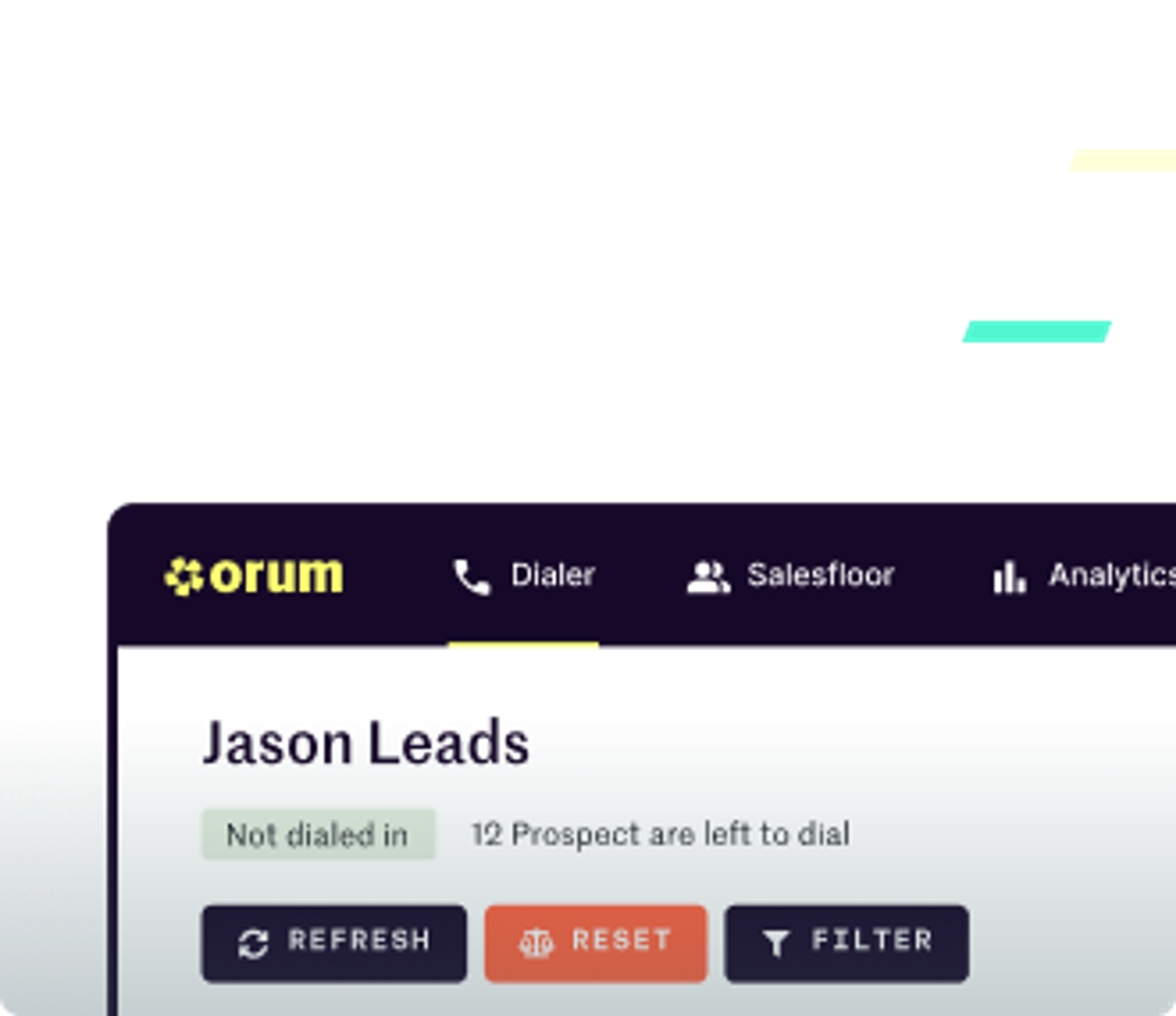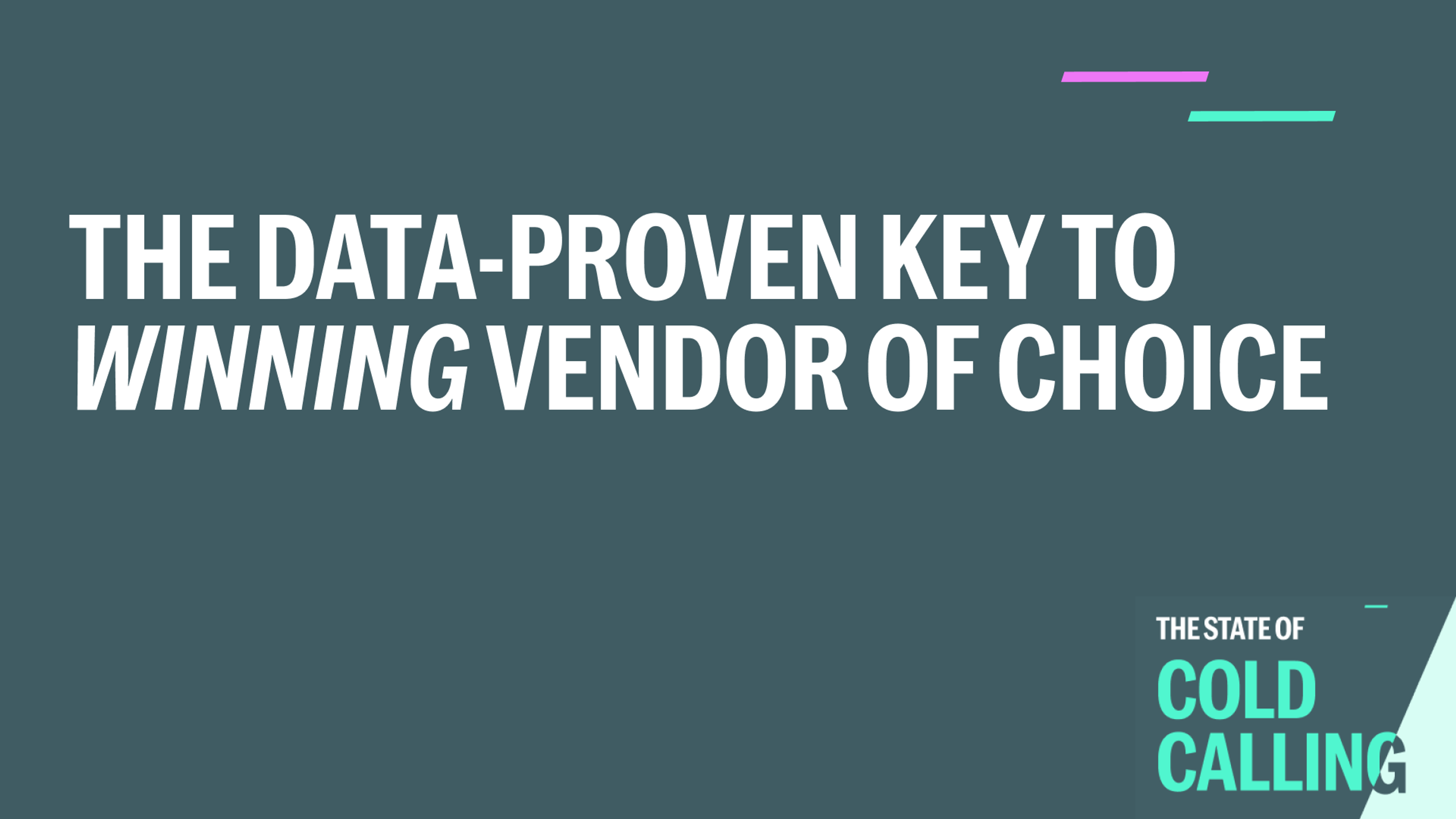I'm too busy: Overcoming the most common cold call objection


If you’ve ever made a cold call, you’ve heard the phrase every sales rep has run into more times than they can count.
“I’m too busy.”
It may vary, of course. Perhaps the prospect is, “Just walking into a meeting” or “Doesn’t have time for this right now” but regardless of how it’s phrased, the objection is the same. They are trying to blow you off and move on with their day.
Cold calling can be stressful, especially when you’re just getting started. This has been discussed ad nauseam. The quiet truth that we rarely talk about, though, is that it’s an uncomfortable moment for the prospects as well. They’re not expecting your call. They’re caught off guard. When you consider this aspect of the cold calling process, you begin to understand why prospects so often feel the urge to end the conversation before it can truly begin.
When you know going into your cold call that you’re likely to be met with this objection AND the reason why the prospect is using it, you can better formulate a response that will result in a positive result. Here are some ways to approach the most common objection during your calls.
How to handle the most common call objection
There are several different ways you can approach the objection that the prospect is too busy but they all boil down to the same concept - meeting the prospect at their level. Be appreciative that you’ve caught them off guard and be open and honest about your intentions. If you keep that mindset at the forefront of your conversation, you have a better chance of getting to your pitch.
Here are a few ways to execute this process:
Address the objection and respect their time
Understand that the prospect's time is valuable and that they are likely being bombarded with calls and emails from other salespeople. Make them feel heard and establish a safe and honest space. You’re calling a human being and it’s important that they feel like you’re respecting that.
Try this line:
“I realize I called you out of the blue/cold. Do you mind if I level with you on why I called and you can tell me if it’s worth following up with you?”
This will take thirty seconds or less and then, at the very least, you’ll have an answer on whether or not to proceed.
Front the objection with instant value
Make sure it’s clear that you have a compelling value proposition for their organization and be able to quickly convey it. Explain how your organization can help solve their pain points and improve their business. Then, work to schedule a follow up meeting to further explain the benefits for their organization.
Try this line:
“I know you’re likely really busy so do you have some time in the next few weeks that we can get on the calendar to discuss this value proposition with you?”
Use Logic & create FOMO
Always be respectful of their time and the current economic climate but don’t be afraid to mention other organizations in their industry that are using your products. In your prospecting, seek out the content they’re posting, what their organization’s account is posting, AND the accounts of their competitors. The more you understand what they need to win in their industry, the more you can personalize the value proposition.
Try this line:
“I know it might not be the right time, but I’d like to get this information in front of you so that when it’s time to make a decision, you have everything you need. I’d love to send you a case study about how [competitive organization] are using our products to succeed in today’s market.”
Multi-thread the prospect
Work to connect with the decision maker while also gathering information from others to build out a portfolio of information. If the person you’re speaking to isn’t the one who will ultimately decide whether or not to purchase, request the contact information for the person who is.
Send a follow up thank you email to the person you spoke to and include case studies and customer stories for them to look at. When you do connect with the decision maker, you’ll then have a reference point to add credibility to your pitch and their coworker will have additional information about how your product is benefitting similar organizations.
Try this line:
“I understand you might not be the person who controls the budget but would you mind giving me their contact information so I can send them some data on how we’re helping organizations in your industry?”
Trust and honesty builds deals
Cold calling is always going to come with some form of pushback from your prospects. It’s human nature to try to end a conversation that catches you off guard. By meeting them where they’re at, emotionally, and being open and honest about your intentions you increase the likelihood of extending the conversation.
The groundwork of every deal is trust. Trust that your product can help the prospect achieve their goals in the present and future. The best way to start to build that trust is by realizing that you’re speaking to a human being and treating them as such.





